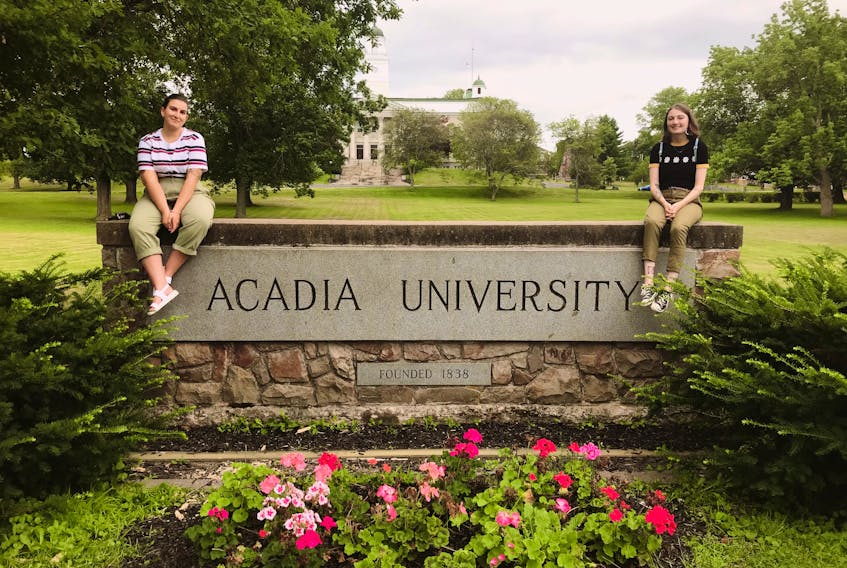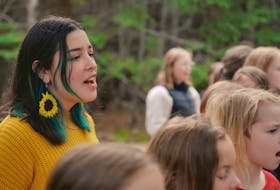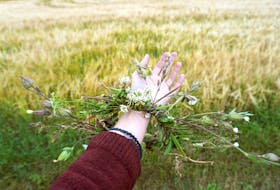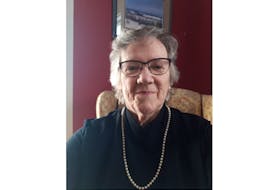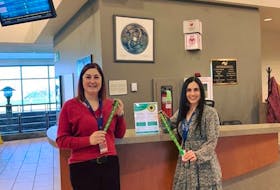The COVID-19 pandemic means that recent post-secondary graduates are among those losing jobs due to the pandemic, and that the competition for existing jobs is steeper than ever.
Sarah MacDonald and Kelsey MacGowan were roommates while attending Acadia University in Wolfville, Nova Scotia. They graduated in 2018 and 2020 respectively, and both lost jobs due to the pandemic.
Now, both are working in fields not related to their areas of study and agree that while they are thankful to have employment, a pandemic is far from an ideal time to be embarking upon their respective careers.
“You’re competing with everybody now instead of a select few, and people’s skills now have to be even better, because there is much competition and so few jobs,” says MacDonald.
Losing existing jobs
Upon graduating in 2018, MacDonald, 23 returned to Stratford, P.E.I. and was hired in November 2019 as the Community Room co-ordinator at the town’s Sobeys grocery store. It was there that she worked alongside the store’s chef to deliver food-related community programming at the store, but when the pandemic hit in March, the position and program were cut.
MacDonald has since bounced between positions at the store and says that while she feels extremely grateful to the store for keeping her employed, it was a hard loss.
“I had a hard time with it, for the first little while. I really loved that job – it was the best one I’ve had so far,” says MacDonald.
The time has also proven challenging for MacGowan, 25, who has been working at the Wolfville Farmers Market since July and the town’s The Market general store since losing her three on-campus jobs to COVID-19.
The pandemic led her to remain in Wolfville in lieu of returning home to Rushden, U.K. after graduating this spring. She feels caught in a strange place post-graduation, but will remain until the pandemic calms down.
“I feel so fortunate to have found jobs so quickly, but it’s still a difficult time. All of my friends don’t really have jobs,” says MacGowan.
Losing out on new opportunities

These lost jobs were only the beginning for both MacDonald and MacGowan, who’ve both experienced challenging job prospects in their respective fields of English and history.
They say the current job climate is far from ideal, as most work opportunities are unrelated to their fields of work and entry-level opportunities that could normally launch careers are impossible to get.
“Many job opportunities that existed pre-pandemic are now gone. It makes it even harder for people trying to get experience to get jobs,” says MacDonald.
This means that many recent graduates like both women are working multiple jobs with precarious hours and low wages. MacDonald did not qualify for the Canadian Emergency Response Benefit (CERB) and had to borrow money from her mother after irregular work hours left her short on rent.
“I was getting only some days of work and it was always a gamble of whether I’d get a shift of not,” says MacDonald.
MacGowan says being employed doesn’t equal financial security and that she too would have worried about rent had she not received the CERB. She now wonders whether collecting perceived income through the CERB will impact her student loan payments and is worried, as she cannot defer these until October.
“I’ve only been making $300-$400 per week since the CERB finished. I’m good for now, but I don’t know how long it’s going to last,” says MacGowan.
Pandemic puts lives on hold
Many across Nova Scotia and the rest of Canada have had to make many concessions to ensure the lowest-possible spread of COVID-19. Many have done so willingly, but conceding one’s career is not something MacDonald or MacGowan could have ever seen coming.
While they are confident they still have bright futures ahead, both feel the pandemic has surely delayed the onset of their respective careers by several years, as they fear it will take months, perhaps years, to secure jobs within their fields.
MacGowan was meant to move back to the United Kingdom after graduating and says she’d likely have found a museum job if she had.
“COVID-19 really put my career on hold, so now I have to work in retail. I really don’t mind it, and I love my jobs, but the reality is that this has set me back with what I’m trying to do with my life,” she says.
MacDonald says she’ll continue searching for writing-related jobs while working at Sobeys, and that she had also planned on continuing to write in her spare time as she works towards her goal of one day publishing a novel.
This is yet another thing she feels has been affected by the pandemic.
“It’s stressful to be creative in time where people are feeling terrible all the time. It makes it a bit hard to see that vision, especially since we don’t know when this will all end,” she says.

